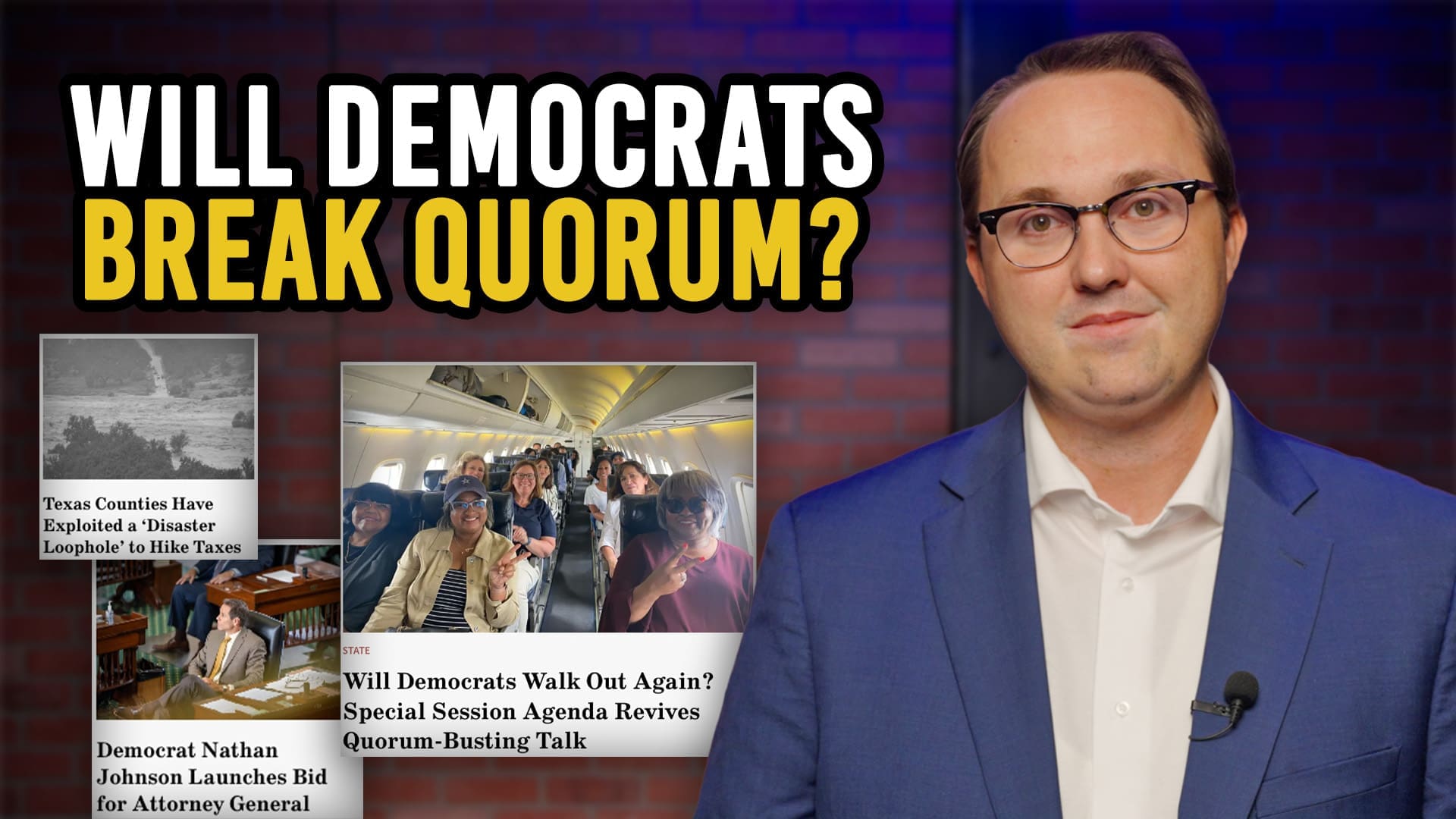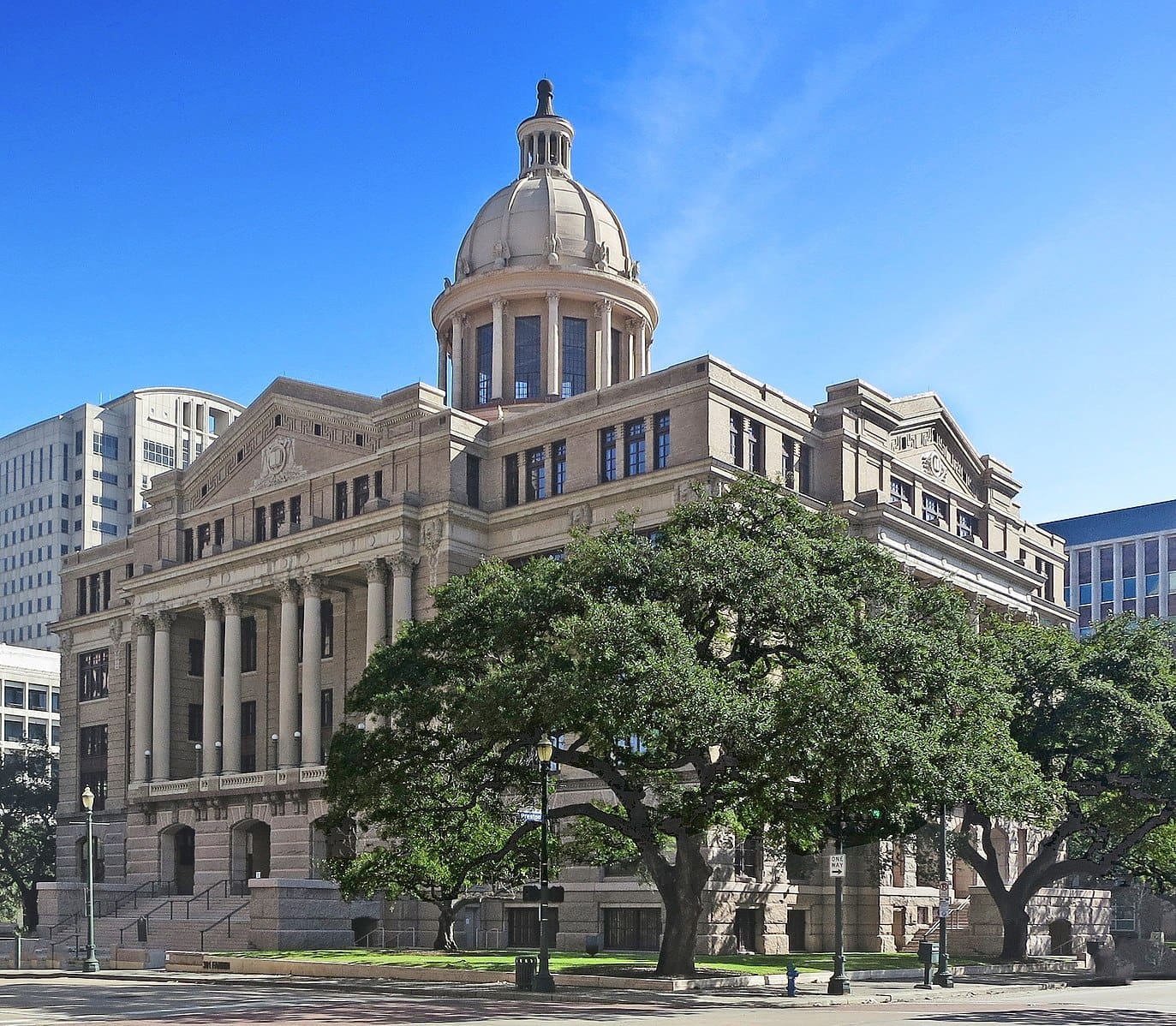Several Republican-priority bills to protect Texas elections and make voting more secure received public hearings last week—along with measures to prevent Democrats from codifying lax voting processes that were temporarily implemented or attempted in 2020, using the Chinese coronavirus as an excuse.
Election integrity is a top legislative priority of the Texas GOP and the only one also declared an emergency item by Republican Gov. Greg Abbott, who has publicly endorsed “robust” election reform legislation.
Dozens of bills to improve election security and voter confidence have been introduced in the Republican-controlled House and Senate.
Last Thursday, the House Elections Committee, chaired by State Rep. Briscoe Cain (R–Deer Park), heard public testimony on nearly a dozen measures aimed at preventing voter intimidation, protecting poll watchers, securing mail-in ballots, and more.
Illegal Voter Assistance
House Bill 611 would clarify what constitutes illegal voter assistance and increase the penalty for multiple offenders.
Assistants already take an oath not to influence a voter’s choices. HB 611 by State Rep. Valoree Swanson (R–Spring) would add that the assistant “did not pressure or intimidate the voter into choosing me to provide assistance.”
Alan Vera, head of the Harris County Republican Party’s Ballot Security Committee, testified in favor of the bill. He said it would address a commonly observed problem of “voter ambush”—political operatives intercepting voters in polling-place parking lots and coercing them into accepting unsolicited assistance.
Under the law, voters are supposed to ask for help, not have it forced on them.
The bill would also increase the penalty for someone who illegally influences or intimidates three or more voters in a single election from a Class A misdemeanor to a state jail felony.
Poll Watchers
House Bill 1724 by State Rep. Dennis Paul (R–Houston) would “further clarify and define” the role of poll watchers.
Paul said while some election officials welcome poll watchers, others see them as adversaries.
HB 1724 clarifies that poll watchers must be allowed to stand or sit “near enough to see and hear” election officials conduct their activities—an issue that has sparked multiple complaints and at least one lawsuit in recent years by watchers who say officials intentionally blocked their ability to effectively observe voter-qualification and vote-counting processes.
Current law makes it a Class A misdemeanor to obstruct a poll watcher, but witnesses said that hasn’t deterred some officials.
Jeannette Hormuth, one of several poll watchers testifying in favor of HB 1724, said a Gillespie County official who prevented her and other watchers from seeing activities at a central counting station told her to “sue me” when she brought attention to the law.
“This is the first time I ever spoke up on anything,” the Fredericksburg resident told the committee, describing how officials confined watchers to a box outlined in tape on the floor.
Another Fredericksburg poll watcher, Angela Smith, said election officials blocking poll watchers is a bipartisan issue that started long before the Chinese coronavirus. She agreed her local officials believe she is adversarial.
“I am not,” Smith said. “This is a very important job. I take it very seriously. I take state code very seriously.”
“Efficiency in processing voters is critical, but so is accuracy,” said conservative activist Ruth York, also speaking in favor of the bill.
Last November, Texas Attorney General Ken Paxton’s office filed a brief in the Texas Supreme Court reaffirming the right of poll watchers to observe ballot counting without being obstructed. The brief was filed in a lawsuit brought by the Travis County Republican Party that alleged central count officials blocked watchers, citing coronavirus concerns. Local election officials agreed in a settlement to allow watchers inside the tabulation area, “conveniently near” election officials to observe their activities.
Paul’s bill also clarifies watchers may speak with any election officials to call attention to election code violations, including any “potentially irreversible procedural mistake.”
Alan Vera testified that well-trained poll watchers “can be a real asset to an election judge,” but only if they can be close enough to see what’s going on and the judge listens to them.
James Slattery with the Texas Civil Rights Project opposed the bill, calling the provision requiring election officials to at least listen to watchers’ concerns “a dangerous expansion” of poll watchers’ power, though he acknowledged he didn’t know the purpose of poll watchers.
“This is an issue that a lot of people care about,” Paul concluded. “The goal is to ensure that votes count.”
Mail Ballot Drop-Off
Paul also presented his House Bill 1725, which would eliminate all in-person delivery of marked mail-in ballots, creating a “clear, clean separation” between in-person and by-mail early voting.
“We already have thousands of mail ballot drop-off locations called U.S. mailboxes,” he said.
Current state law allows voters to deliver marked mail ballots in person at their county’s main early voting center while the polls are open on Election Day.
Claiming authority under his COVID-19 disaster declaration to suspend state election law, Gov. Abbott issued an executive proclamation in July allowing voters to hand-deliver completed mail ballots before the November 2020 Election Day.
Harris County’s Democrat election chief then told local voters they could drop off mail ballots at multiple county clerk branch offices—something not allowed by state election code. Citizen poll watchers also complained they were denied access to observe ballot drop-offs, then taking place at 11 locations over the course of several weeks.
In a later proclamation, Abbott said marked mail ballots could only be hand-delivered to a single location designated by each county.
But Democrats want to make the temporary loosening of voting rules during COVID a permanent feature of Texas elections.
No state law currently exists either allowing or prohibiting unmanned mail-ballot drop-off boxes, which Paul said are not secure—vulnerable to vandalism as well abuse by ballot harvesters.
“We need to be sure local election officials are not creating election law,” he added.
Opponents of HB 1725 said in-person drop-off is “a crucial backstop” for people who receive their mail-in ballots late. Yet voters would still have the option of surrendering their mail ballot at a local polling place and voting in person.
Unsolicited Mail Ballot Applications
Swanson’s House Bill 25 would prohibit government officials or employees from distributing unsolicited mail-ballot applications while acting in their official capacity—another response to attempts last year by Harris County’s Democrat election chief to create election law.
“In 2020, political subdivisions all across the country and in Texas took it upon themselves to bend or violate their own state election laws, particularly as they relate to mail-in ballots,” said State Rep. Mike Schofield (R–Katy), who laid out the bill for Swanson.
“In Texas, the courts blocked every attempt,” Schofield said. “But when and how mail-in balloting is conducted needs to be definitely codified.”
Last October, the Texas Supreme Court stopped Harris County’s scheme to send mail-ballot applications to all 2.4 million of the county’s registered voters, whether they were eligible to vote by mail or not.
“In many cases, unsolicited ballot-by-mail applications are intercepted by somebody other than the voter, and that person requests and votes the ballot,” said Vera, speaking in favor of the bill. He said flooding the market with hundreds of thousands of unsolicited mail-ballot applications would needlessly increase voter confusion.
“I’m really concerned about interception,” said Kimberly Young, who told committee members her husband received an unsolicited ballot application that was left in their open rural mailbox.
“Compared to in-person voting, voting by mail is substantially less secure and much easier to manipulate,” Scofield added. “Mail-in voting should not be used as a replacement for in-person voting based solely on convenience.”
State Sen. Paul Bettencourt (R–Houston) has filed companion legislation to HB 25, Senate Bill 208.
More Legislation
As reported last week, the committee heard testimony on a top-priority bill to increase the penalty for election fraud crimes from a misdemeanor to a felony—a specific election reform goal set by grassroots GOP activists. They also heard a non-binding resolution to support processing and storing all election data within the United States—a standard Texas already meets, according to testimony from the state’s director of elections.
Below are other election integrity bills the Elections Committee heard last week:
- House Bill 1264 by State Rep. Keith Bell (R–Forney) would shorten the time to submit monthly death reports to voter registration officials, currently 10 days.
- House Bill 1382 by State Rep. John Bucy (D–Cedar Park) would direct local election officials to maintain an online system for voters to track their mail ballots. Similar bills propose having the secretary of state’s office implement online mail-ballot tracking.
- House Bill 1397 by State Rep. James White (R–Hillister) would require voting equipment vendors to disclose their owners.
Looking Ahead
This Thursday, March 25, Cain’s omnibus election reform measure House Bill 6 is on the Elections Committee agenda.
On the Senate side, Democrats delayed Monday’s scheduled hearing of multiple election reform bills in the State Affairs Committee, using a procedural maneuver called “tagging.”
The committee chairman, State Sen. Bryan Hughes (R–Mineola), rescheduled the hearing for Friday, March 26. Priority bills on the agenda include Hughes’ comprehensive proposal Senate Bill 7 and four of Bettencourt’s “Integrity Seven” bills.
Texans can contact state officials about election integrity and other issues.
Details about bills, along with other resources to help citizens participate in the legislative process, are available at Texas Legislature Online. The regular legislative session runs through May 31.





